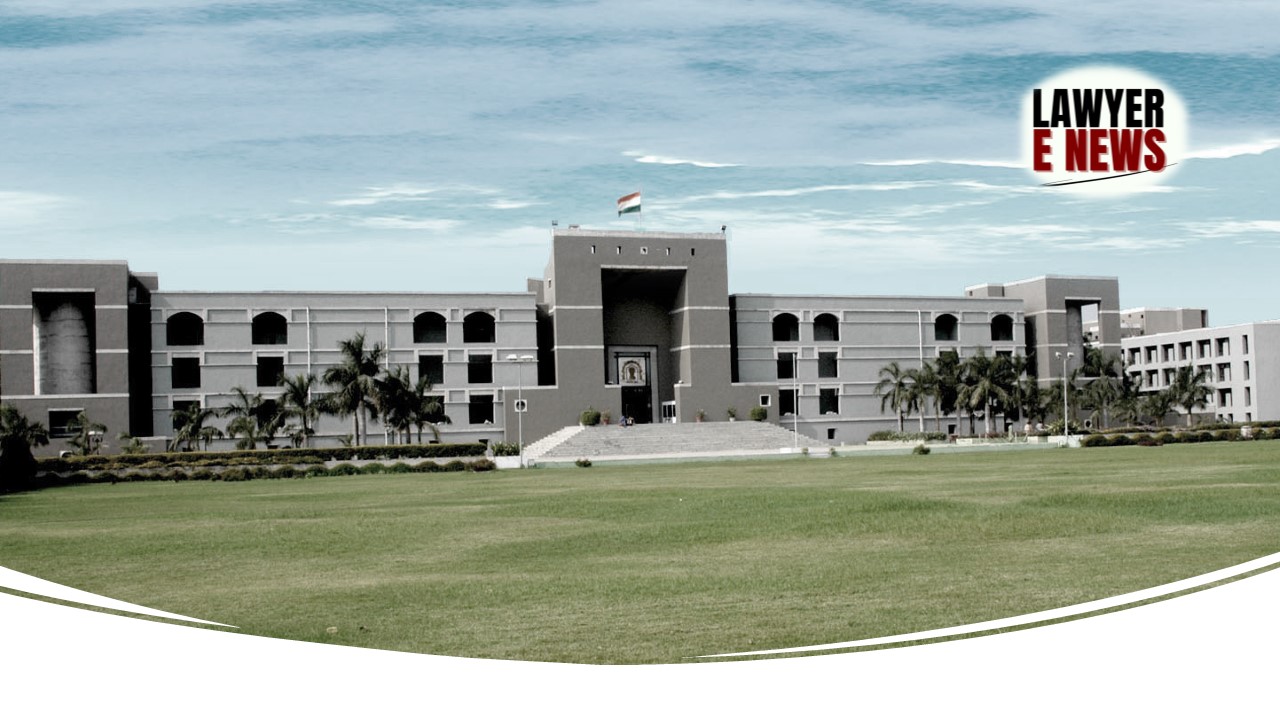-
by Admin
15 February 2026 5:01 PM



Gujarat High Court dismissed the bail application of Shubham S/o Dayaram Nankuram Pal, accused in a horrific case of gang rape and sexual abuse of a 13-year-old girl. Justice Divyesh A. Joshi, presiding over the matter, ruled that the filing of the chargesheet did not constitute a substantial change in circumstances warranting bail. The Court stressed the gravity of the allegations, the societal impact of such crimes, and the risk of evidence tampering as reasons to keep the accused in custody.
Justice Joshi clarified that the mere filing of a chargesheet does not automatically justify bail unless accompanied by substantive changes in circumstances. Referring to the Supreme Court’s decision in Virupakshappa Gouda v. State of Karnataka (2017) 5 SCC 406, the Court observed:
“Filing of the chargesheet does not in any manner lessen the allegations made by the prosecution. On the contrary, it establishes that the investigating agency has found sufficient material to proceed to trial against the accused.”
The Court further highlighted that bail decisions must be guided by judicial discretion, exercised in a judicious manner based on the facts of the case.
The case pertains to the prolonged sexual abuse of a minor girl over four years (2019–2023). The victim, whose father is also an accused, was repeatedly assaulted by multiple individuals, including the applicant, according to the prosecution. The abuse came to light when the victim, living in an orphanage, disclosed her ordeal to a caregiver, leading to the filing of the FIR in September 2023.
The applicant, aged 21, argued that he was wrongly implicated in the case, pointing to delays in filing the FIR, a lack of medical evidence of injuries, and his alleged absence from the scene of the crime. The prosecution, however, presented strong evidence, including the victim's detailed statement, supporting the allegations.
The Court emphasized the heinous nature of the offence, stating that crimes of this magnitude undermine societal confidence in the justice system. Justice Joshi observed:
“The offence alleged is an onslaught on the dignity of womanhood. Granting bail in such cases would erode public confidence in the criminal justice system and cause great prejudice to the victim.”
The Court further noted that granting bail could enable the accused to tamper with evidence or intimidate witnesses, which would prejudice the trial and justice process. The applicant’s argument that he was young and in custody for over a year was dismissed as insufficient to outweigh the gravity of the crime.
The High Court referred to key parameters for granting bail, including the severity of the allegations, the prima facie evidence against the accused, and the potential for tampering with witnesses or absconding. Justice Joshi observed:
The charges against the applicant involve heinous crimes such as gang rape, which carry severe punishment.
The victim's detailed statements and supporting evidence established a prima facie case against the accused.
The prosecution raised valid apprehensions about the accused influencing witnesses or fleeing trial if released.
While acknowledging the importance of individual liberty under Article 21 of the Constitution, the Court held that it must be balanced against societal interests and the need to ensure justice for the victim.
The Gujarat High Court found that the applicant failed to demonstrate any substantive change in circumstances since the rejection of his earlier bail application. The filing of the chargesheet only confirmed the allegations against him, and the evidence on record established a strong prima facie case of his involvement.
Justice Joshi concluded: “Considering the heinous nature of the crime, the role attributed to the applicant, and the prima facie evidence on record, this Court finds no justification to grant bail.”
The application for bail was thus rejected, with the Court reiterating that its observations were limited to the bail proceedings and should not prejudice the ongoing trial.
Date of Judgment: December 2, 2024
